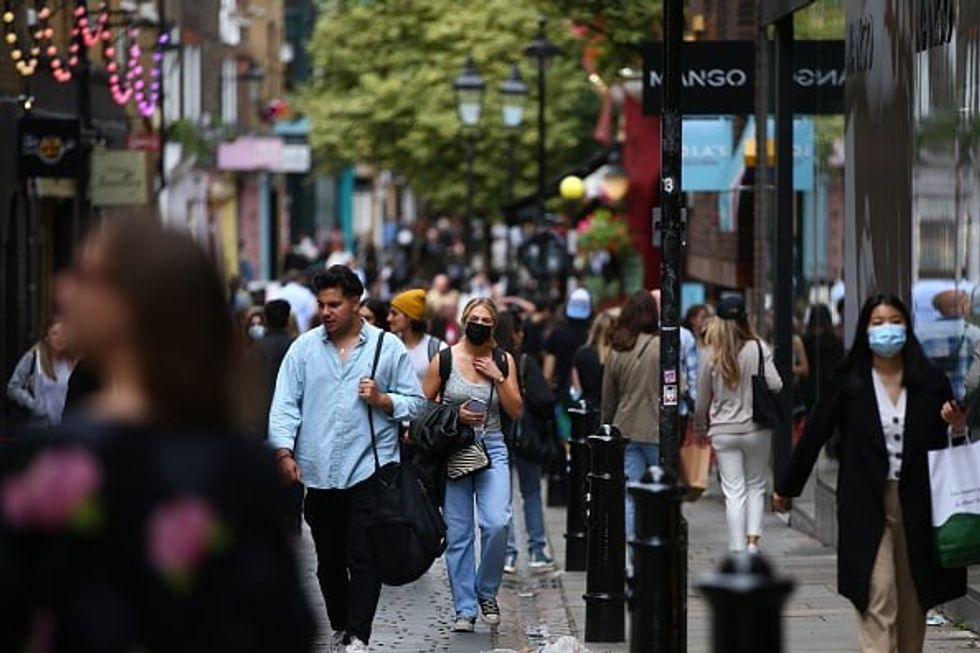BRITAIN's medical bodies have warned that the “freedom” may last only for a few weeks as all forms of Covid-19 restrictions in England are set to end on July 19 amid rising cases. UK health and social care secretary Sajid Javid said that the country is entering “uncharted territory” and cases may rise up to 100, 000.
Scientific Advisory Group for Emergencies (SAGE) has warned that the current surge in the infection numbers pose a “significant risk”, with many experts fearing that the Covid restrictions might have to be re-imposed just weeks after they are lifted.
At a Downing Street briefing on Monday (5), prime minister Boris Johnson axed all the form of Covid restrictions from July 19 onward, including face mask covering, social distancing, indoor seating, restrictions on night clubs and QR codes for entry in public places, among a few others.
The scientists also warned that the easing of all restrictions might give rise to super-spreader events, especially in tightly-packed venues, pointing out that mask wearing was still mandatory on public transport in countries with low numbers of Covid-19 cases like New Zealand.

Speaking at BBC Radio 4 programme, Javid accepted it was “fair to say” that even this figure might double, when asked to comment on government projections that infection rates may reach 50,000 a day by July 19.
“Because this is uncharted territory for any country in the world, as you go further out, week by week, the projections are even less reliable,” Javid said. “As we ease and go into the summer, we expect them to rise. They could go as high as 100,000.”
Meanwhile, 27,334 new Covid infections were reported across the country on Monday (5) with most of the areas reporting a rise in cases while just four reported a fall.
Newcastle now has the highest rate, according to the latest figures, as the city recorded a total of 2,012 new cases of Covid-19 in the seven days to June 30. South Tyneside, Oxford, Gateshead, County Durham and North Tyneside are also currently seeing the highest rate of new cases.
Most cases on Tyneside are said to be among largely unvaccinated under 25s, said the city’s deputy director of public health, Lorna Smith, adding that the surge is, however, “not resulting in a huge increase in hospitalisations compared to previous waves of infections”.
Six of the top 10 highest rate areas are now in north-east England, suggesting that the region has overtaken the north west part of the country as England’s coronavirus hotspot.



















